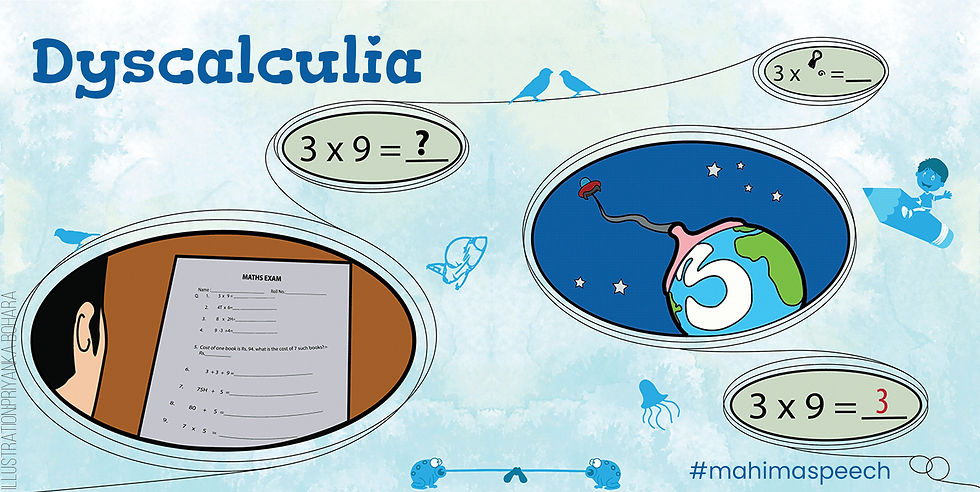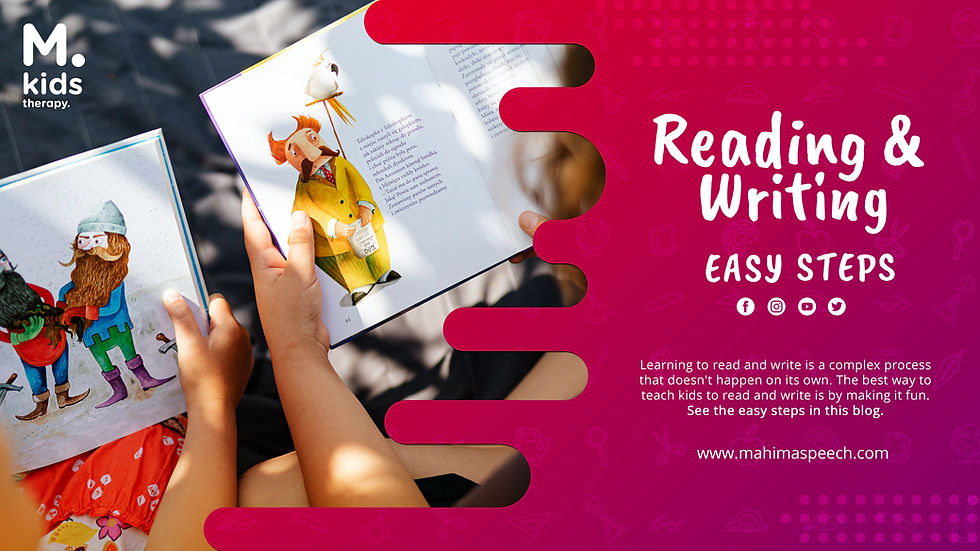Taare Zameen Par
- Mahima Thomas

- May 28, 2020
- 2 min read
Updated: Jun 8, 2020

Learning Disability is a lifelong difficulty that affects abilities in written, spoken, math, attention, concentration domains…i.e., it encompasses a wide variety of learning problems that affect academics,learning, social skills etc. It does not involve only reading or writing issues but can affect the ability to communicate, nonverbal skills and higher cognitive skills like reasoning, memory
etc.
So, are they lazy, not motivated, incompetent, below average intelligence??

Learning disabilities occur due to genetic/neurological factors that alter brain functioning leading to the learning issues. It is beyond their control. And so, as the saying goes “Everyone is a genius. But if you judge a fish by its ability to climb a tree, it will live its whole life believing that it is stupid.” Let’s not judge them but give them helping hands to achieve the possible.
Types of Learning disabilities
Dyscalculia:

This is when a 3 can look as an E, or 6 becomes a 9 and whole lot of other squiggles. Any math
concept is difficult and an uphill task. It can manifest as difficulty remembering basic math
facts, telling time, counting money, abstract concepts like greater than, less than are difficult
etc.
So, what can help?
• Use a multisensory approach to teach
• Use concrete objects to teach concepts
• Allow extra time on tests
• Graphs and charts to break up concepts
• Avoid methods that rely on memorising
Dyslexia:

Often the first symptom to crop up in learning disability. Reversing of letters and mirror
images are a common aspect in children till grade 2. But persistence beyond 7 years can
signify a learning disability issue. Spelling recognition, reading fluency, ability to match sounds
to the written letter can be affected. It does not mean that the child is of low intelligence.
Help Tips?
• Match the letter to words techniques
• Encourage reading habits
• Keep it short and clear
• Play word games
• Go Hi-tech (tabs and digital learning websites)
• Encourage and build confidence
Dysgraphia:

Affects writing abilities and fine motor skills. Poor handwriting and spelling, poor spatial, planning on paper, inconsistent spacing, composition difficulties etc. can manifest.
Help Tips?
• Start with working on the fine motor movements
• Use of prompts/cues/organizers
• More space to write
• Use of multisensory techniques
• Use of assistive technology
Slow Learners

These are students who learn at a pace lagging behind their peers. It is not a diagnostic category. But they do not meet the criteria for learning disability. Their developmental milestones are generally slower when compared to same age children. An in-depth evaluation with the help of a special educator, psychologist, speech therapist and teacher can help differentiate between slow learners and a child with learning disability.. But they do not meet the criteria for learning disability. Their developmental milestones are generally slower when compared to same age children. An in-depth evaluation with the help of a special educator, psychologist, speech therapist and teacher can help differentiate between slow learners and a child with learning disability.



Comments